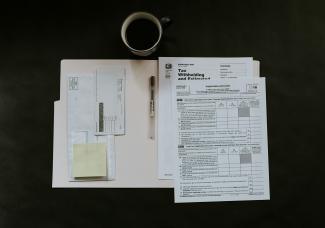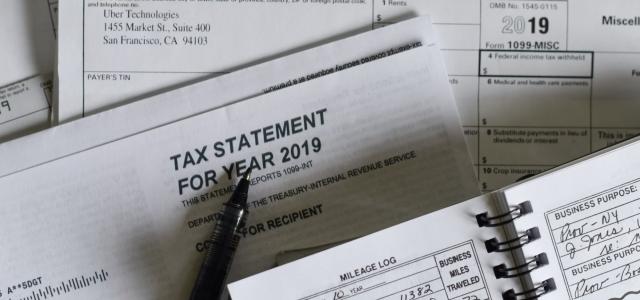
What To Bring To A Financial Meeting
What to Bring to a Financial Meeting (and Why It Matters More Than You Think)
Whether it’s your first meeting with a financial advisor or your fiftieth, knowing what to bring — both in terms of documents and mindset — can make all the difference. At Ocean’s Edge, we want your time with us to be as valuable and productive as possible. So we’re pulling back the curtain to share what really helps make these meetings successful (and stress-free).
Why Preparation Sets the Tone
When you show up prepared, you’re giving your advisor the tools to understand your full financial picture. As financial advisor Duane Silbernagel puts it:
“It’s not about being ‘good with money’ — it’s about being open and willing to have the conversation. Sometimes people just don’t know what to expect, and that’s okay. Our job is to meet you where you are and help you move forward.”
Before diving into the numbers, it’s essential to have a complete picture of your financial life. Bringing the right documents—retirement account statements, tax returns, life insurance papers, estate documents, and any relevant loan or mortgage information—allows your advisor to see the big picture right away. This leads to better, more tailored advice and helps you avoid multiple follow-up appointments just to gather missing details.
What to Bring: A Quick Checklist
- Retirement Account Statements. Having up-to-date statements for 401(k)s, IRAs, or other investment accounts helps us assess your portfolio allocation and overall strategy.
- Tax Returns. A recent tax return can reveal key details about your income, tax bracket, and potential areas for savings or adjustments.
- Insurance Documents. If you have life insurance or health insurance that may need updating, bring those policies along.
- Estate Planning Papers. Wills, trusts, and other estate documents should be reviewed periodically to ensure they’re still valid and reflective of your wishes.
- Loan and Mortgage Details. Knowing the terms, balances, and interest rates on any loans helps us determine repayment strategies and cash flow considerations.
- Valid ID – If we're opening new accounts, we’ll need to verify your identity.
“We can never have too much information,” Rilee says. “If you’re unsure whether to bring something, just bring it. We’ll sort out what’s useful.”
What’s Optional?
You don’t need to bring your bank statements unless you want a deep dive into budgeting or cash flow. A ballpark estimate of your checking and savings balances is usually just fine.
What’s your mindset
Finances are personal. And let’s face it — talking about money with someone you don’t know very well can feel vulnerable. But that’s okay.
“Money and emotions are closely tied,” Duane explains. “Society teaches us not to talk about money, and now you’re supposed to open up to someone you’ve just met. That’s a big ask.”
Everyone starts somewhere, and being honest about your situation is the best way to get the guidance you need.
Here’s the thing: you won’t shock us. Between Rilee and Duane, there’s more than 20 years of combined experience — and they’ve seen just about everything.
“We’re not here to judge. We’re here to help you play the hand you’ve been dealt in the smartest way possible,” Rilee reassures.
Why Regular Check-ins Matter
You might think, “I get my statement. Isn’t that enough?” Not quite.
Annual meetings are the bare minimum — and even that might not be enough, depending on your life stage and goals. As Duane puts it:
“The more frequently we check in, the more we can stay ahead of life’s curveballs — job changes, market shifts, emergencies. If we wait too long, we end up reacting instead of planning.”
These check-ins also give your advisor a chance to make adjustments, optimize strategies, and help you stay emotionally grounded when challenges arise.
How You Should Feel Walking Out the Door
Whether it’s your first visit or your fifteenth, we want you to walk out of our office feeling three things:
Confident. Comfortable. Enlightened.
By the end of the meeting, you should have a better understanding of where you stand, what actions are being taken, and how your financial life is moving toward your goal. We want you to leave with both insight and peace of mind — not confusion or worry.
“What we’re really offering is confidence,” Duane says. “When something unexpected happens — and it will — we want to be the people you trust to help fix it.”
Ready to Take the First Step?
When you're ready to take the next step, we’re here to walk it with you. Schedule your appointment with Ocean’s Edge today and experience what it feels like to be informed, supported, and truly understood.
Because your financial future deserves more than guesswork — it deserves guidance.






